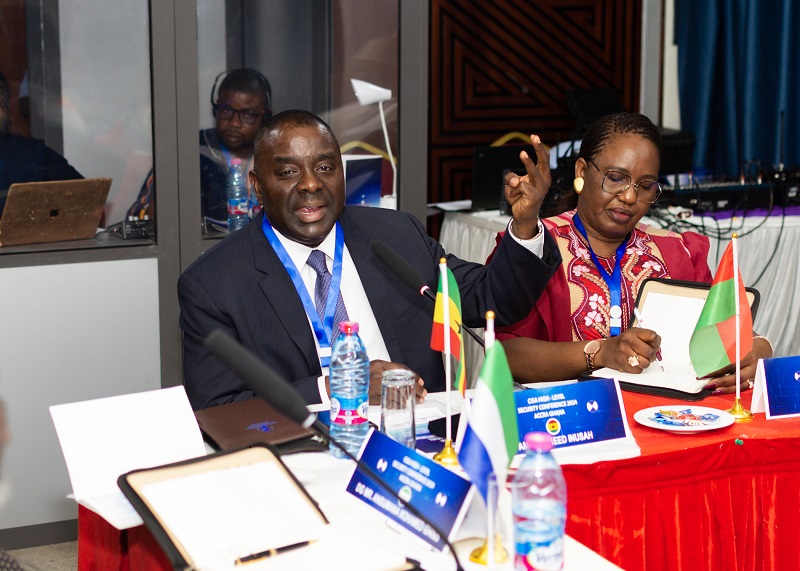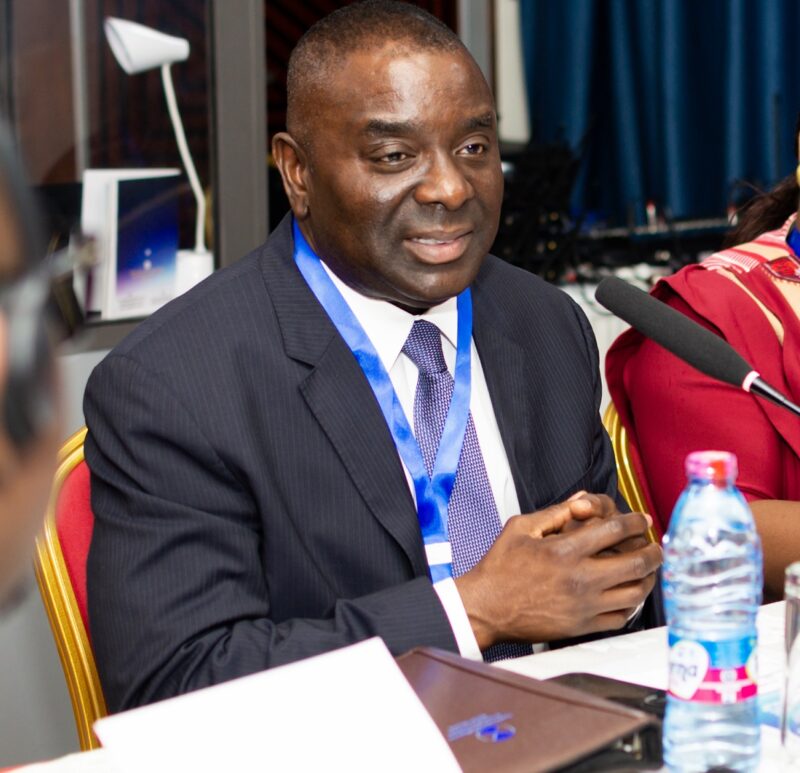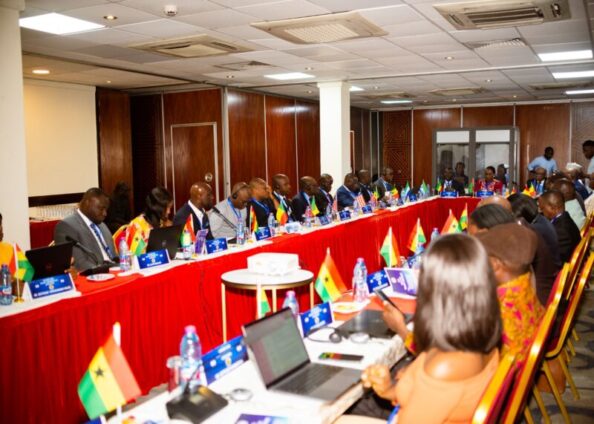Security experts from 10 West African countries are in Accra for a high-level conference organised by Ghana-based NGO, Centre for Intelligence and Security Analysis (CISA).
The delegations include the Directors-General and their representatives of the security apparatus of Benin, Burkina Faso, Chad, Ivory Coast, The Gambia, Guinea, Liberia, Senegal, Sierra Leone and Ghana.
The two-day international conference billed for Thursday, November 7 and Friday, November 8 at the Lancaster Hotel, Accra, is focused on ‘the new paradigms for ensuring peace and security in Africa – the need for closer collaboration with non-governmental security and intelligence organisations.’
Welcoming the participants to the conference, CISA CEO Rasheed Seidu Inusah, who previously served as an Ambassador, Director-General of the Research Department of Ghana’s Foreign Affairs Ministry and Director-General of the host nation’s National Intelligence Bureau (NIB), said: “There is no doubt that our collective security as Africans is at a pivotal moment in our history,” thus, making such an international conference timely.
Mr Inusah, a lawyer, explained: “West African countries are experiencing mounting challenges in the form of political instability, insurgencies, foreign interference, and socio-economic disruptions,” which, he noted, “have led to increased geopolitical instability and fractured alliances,” and, therefore, “an urgent rethink” of national security was necessary “to overcome the myriad of threats to our region.”
The security challenges the region faces today, Mr Inusah acknowledged, are “complex in nature and multifaceted in scope,” but “present us with new opportunities for meaningful collaboration and cooperation between governments and non-governmental organisations.”
The conference, he pointed out, provides the region and Africa in general, with “a unique opportunity to reflect and exchange ideas on how to advance this collaborative effort.”

In his expert estimation, “It is no longer an option but an imperative that we take these steps,” adding: “This is primarily because our collective challenges have moved beyond the traditional to new forms of security challenges that are constantly evolving.”
The deliberative topics for the conference are security contagion, which, Mr Inusah said “highlights the interconnectedness of regional security and the importance of cooperative approaches to addressing cross-border threats;” the twin phenomena of misinformation & disinformation, which he indicated “fuel” the former; and effective resource management that “can boost our resilience to such threats.”
“We can address these issues holistically to develop a regional security strategy that will promote stability across our continent,” Mr Inusah indicated.
In a keynote address, Burkina Faso’s former Minister of Foreign Affairs, Olivia Ragnaghnèwendé Rouamba, noted that the limitations of governmental interventions make it necessary for a rethink of paradigms in confronting such threats.
Africa’s traditional approach to security, she noted, “relies heavily on government-controlled military and intelligence services,” acknowledging that even though “this model has historically served as the cornerstone of national defence,” it has “proven inadequate in addressing the continent's modern security challenges, which include terrorism, insurgency, and inter-ethnic violence.”
In Burkina Faso, for instance, Ms Rouamba stated that “state forces have been stretched thin by the escalating violence in the Sahel, where extremist groups exploit weak borders and local grievances to destabilise the entire region.”
She observed that in Africa’s pursuit of stability, “it has become increasingly clear that state-centric strategies, while foundational, require complementary support from non-governmental security and intelligence organisations (NGSIOs),” explaining: “This includes partnerships with private security firms, intelligence-sharing initiatives, good management of information between states and security-oriented NGOs, and grassroots organisations that play an essential role in peacebuilding and community security.”
To address the limitations of state-led security strategies, Ms Rouamba suggested that African nations “work more closely with non-governmental security and intelligence organisations.”
These entities, she underscored, “bring unique capabilities, particularly in areas where state presence is limited or mistrusted.”
Buttressing her assertion, the Burkinabe diplomat cited that NGOs “are often deeply embedded within communities, allowing them to gather local insights, foster dialogue, and mediate conflicts that would be challenging for formal state forces to address alone.”
“One successful example is Kenya, where the NGO Search for Common Ground has worked with local communities to mitigate conflicts and reduce the influence of extremist groups such as al-Shabaab,” Ms Rouamba adduced, adding: “By promoting community-led dialogues and providing training in conflict resolution, this organisation has helped foster trust between citizens and state security forces, reducing the community support that violent extremists rely on.”
Similar community-oriented approaches, the former minister argued, “can provide crucial support for peace and stability, especially in regions where traditional state presence is minimal.”
In West Africa, for example, she mentioned that the African Centre for the Study and Research on Terrorism (ACSRT), an institution under the AU, “collaborates with various NGSIOs to strengthen regional intelligence-sharing.”
This collaboration, she indicated, “enables the ACSRT to gather and analyse data from diverse sources, including local organisations and international NGOs, which bolsters its early warning systems and threat assessments.”
Such partnerships, Ms Rouamba noted, “Highlight the potential for hybrid intelligence models to enhance the accuracy and timeliness of security information, leading to more effective prevention and response strategies.”

In her view, Africa faces “an urgent need to adopt adaptive, inclusive approaches to peace and security that go beyond traditional state-centric models,” insisting: “The integration of non-governmental security and intelligence organisations into Africa’s security architecture offers a pathway toward more resilient, context-sensitive solutions to the continent’s complex challenges.”
Ms Rouamba said by engaging private firms, NGOs, and community organisations, African nations “can expand their capabilities, foster trust with local populations, and address both the symptoms and root causes of insecurity.”
At the end of the two-day conference, the organisers, CISA, is expected to issue a communiqué of the resolutions adopted by the plenary.
Latest Stories
-
No student has been served unwholesome meals – Nana Boakye
5 mins -
Galamsey has left our river deities powerless – Fetish Priest laments
19 mins -
It was unfair to destroy Leslie’s Fantasy Dome – Okraku-Mantey
23 mins -
Expired rice scandal: We won’t jeopardize people’s health or safety for any reason – FDA
28 mins -
UniMAC to host public forum on democracy and communication
47 mins -
Expired Rice Scandal: Ablakwa slams Lamens Company for “Criminal” acts
59 mins -
Avoid the use of vituperative expressions in your campaigns – NCCE
1 hour -
No petroleum revenue allotment to industrialisation in first half of 2024 – PIAC report
1 hour -
Baba Sadiq motivated me to vie for MP position – Okraku-Mantey
2 hours -
“Black Stars failure to qualify for AFCON 2025 a big blow” – Ibrahim Tanko
2 hours -
NPP’s campaign is going very well – Nana Akomea
2 hours -
Employees must file annual income tax returns – Ghana Revenue Authority
2 hours -
SAB Foundation awards fully funded tertiary scholarships to 11 students
3 hours -
Does the Police law empower police to run a broadcasting service?
3 hours -
GFA dissolves Black Stars Management Committee after AFCON qualification disappointment
3 hours

